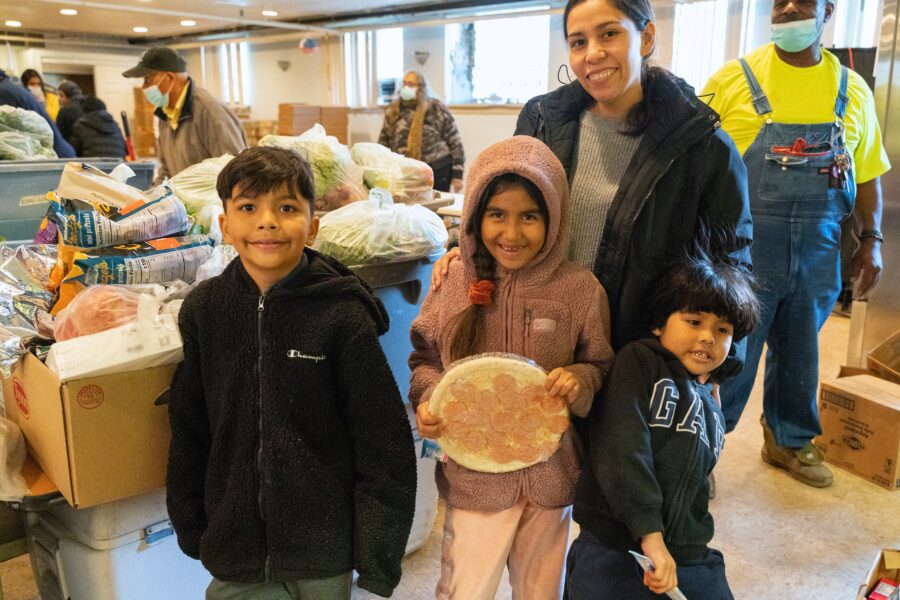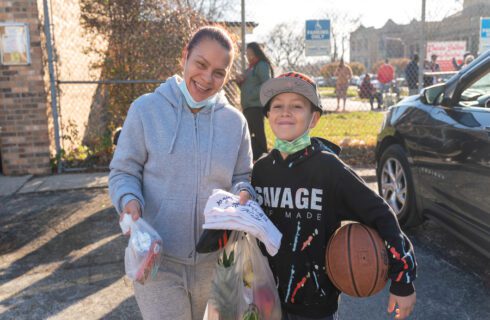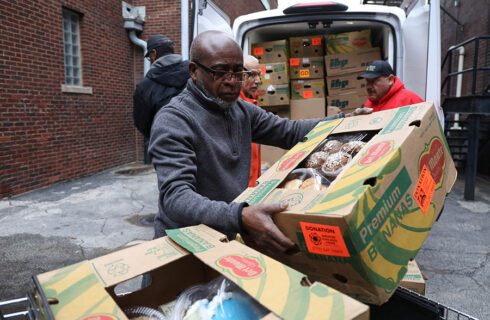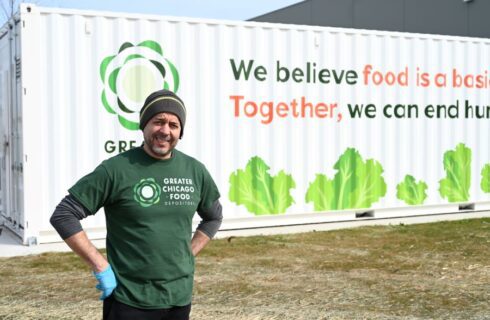Avery Roche is looking forward to tonight. Because tonight is taco night. That’s what he makes himself for dinner most evenings following a visit to his local pantry at New Mount Calvary Baptist Church in West Englewood.
“The food I get here helps me get through the month,” said Avery, 56. “I don’t get much Link.” He’s referring to SNAP/Link benefits, formerly known as food stamps.
Avery is not alone. About 75% of New Mount Calvary Baptist Church’s pantry guests are SNAP (Supplemental Nutrition Assistance Program) participants. They are among two million SNAP recipients in Illinois who will see their monthly payments reduce starting in March.
SNAP participants have received extra benefits since April 2020 to help buy food during the pandemic. These monthly supplements have been instrumental in helping families weather the public health crisis and avoid food insecurity. However, due to a federal policy change in the Omnibus Bill passed at the end of 2022, the emergency supplements are ending at the end of February – two months earlier than expected.
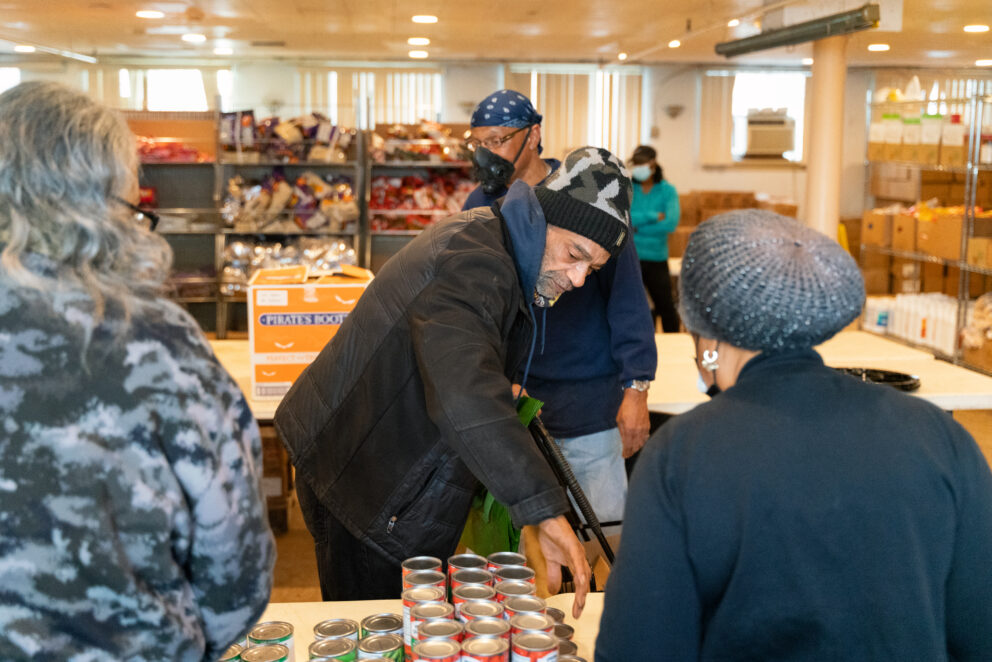
Avery Roche is grateful he lives just two blocks from New Mount Calvary's pantry.
“The pandemic made it really hard to make (benefits) stretch,” continued Avery. “Why are they cutting our benefits now when (food) prices have gone higher? We need them now.”
Pantry coordinators are just as worried.
“Our numbers are going to get higher because the (emergency) SNAP payments are ending,” warned Raletta Ingram, who co-manages the New Mount Calvary Baptist Church’s pantry with colleague Yolanda Morris.
“It makes me feel sad. I’m worried about how people will cope, especially the kids,” Ingram said.
“As a mother myself, it hurts my heart at the thought of not being able to feed your child. It’s devastating. I see the concern in the eyes of mothers (who come) here all the time when they can’t find food. I’m concerned about kids going to bed hungry. It shouldn’t be this way.”
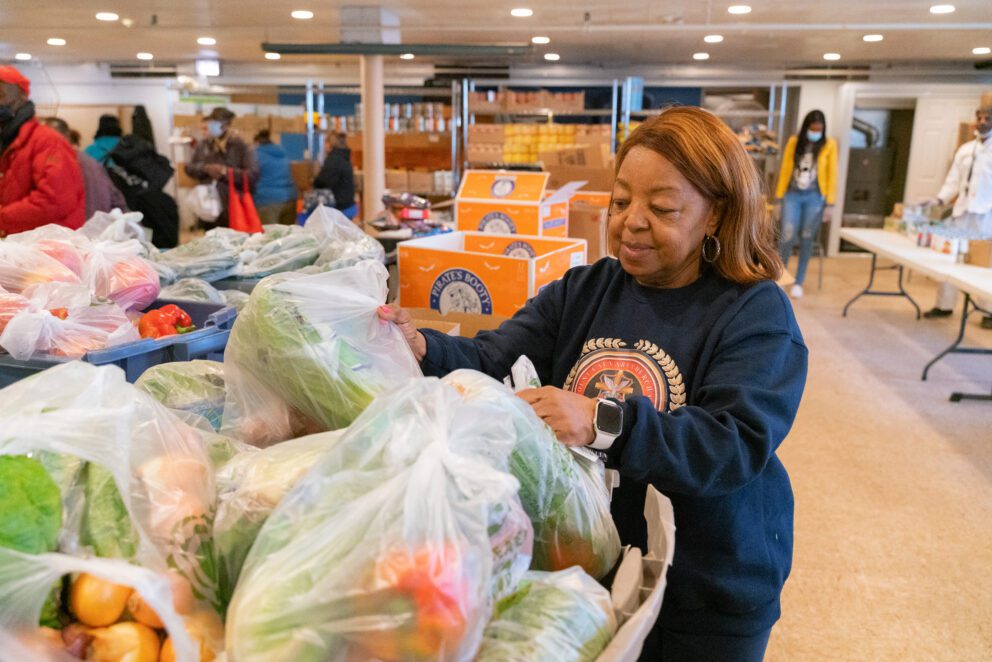
Raletta Ingram, who co-manages the New Mount Calvary pantry, worries about how the change in SNAP benefits will impact children in her community.
Ingram recalls a recent pantry guest who was in despair because he didn’t know how he was going to feed his children that night. He told Ingram that he hadn’t worked since losing his job at the start of the pandemic and had just got called back to work. However, it would be another two weeks before he would get paid. “He was so grateful, he had tears rolling down his face. I’ll never forget it,” she said.
Morris, who has managed the pantry for more than 10 years, says the pantry has served its neighbors for more than 16 years. Seventy percent of its guests are African American. This Black History Month, the Food Depository honors their work. New Mount Calvary serves an average of 225 guests at each of their weekly food distribution events.
“We couldn’t do this without the Food Depository. There’s no way,” said Morris. “We’re a small congregation. Fewer than 75 members. We have just enough for the lights and gas.”
SNAP participant Avery Roche says he feels lucky to live just two blocks away from New Mount Calvary and is careful to only get what he needs. However, if he runs out of food, he says it’s nice to know he is welcome to go back to get a little more. He likes to cook and enjoys getting vegetables, meat, and fruit, especially apples to make apple pie.
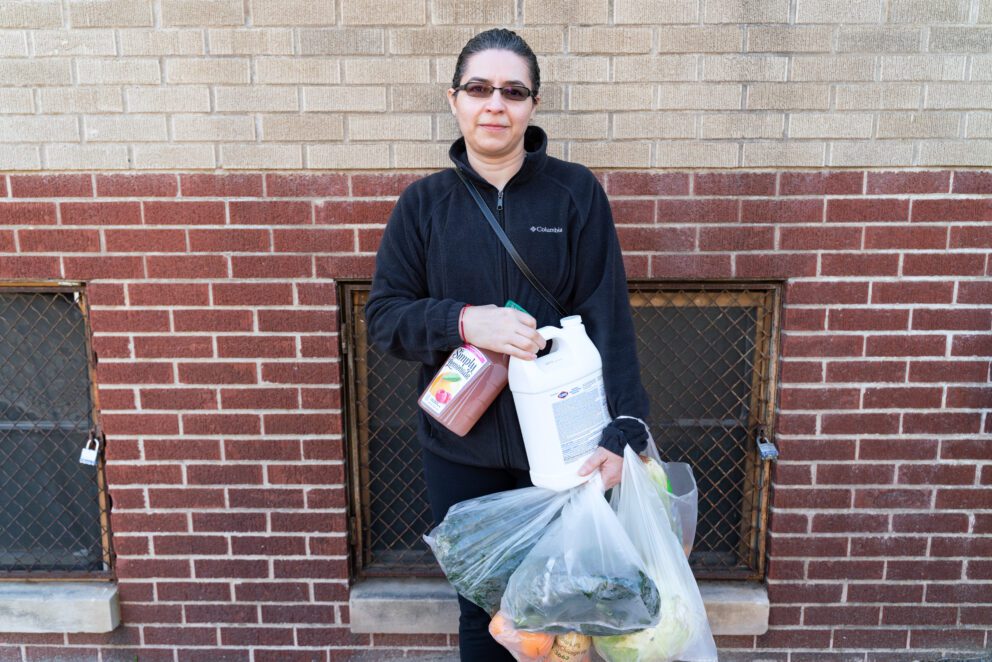
Adriana Angula likes getting vegetables, fruit, and milk for her two children.
Mother of two, Adriana Angula, is equally grateful for her neighborhood pantry.
“They are very respectful and friendly and organized,” she said.
Angula works as a cashier at a nearby restaurant and when she can she tries to schedule her days off around New Mount Calvary’s distribution days.
“I don’t qualify for SNAP. And it’s really difficult to feed myself and my kids on what I make,” she said, adding that her children are really excited when she comes home from a pantry visit.
“I like to get the vegetables and fruit and milk,” she said, adding that they provide more nutrition for her kids than the canned goods.
Ingram, who volunteered at New Mount Calvary for more than 10 years before helping to run the pantry two years ago, says she couldn’t be happier spending her time helping her community.
“I DO enjoy my retirement. I enjoy volunteering (at the pantry). When I go home at the end of the day, I may be tired, but my heart and mind are so rejuvenated,” she said. “When people leave here with a bag of food, they’re able to hold their head up. That’s a good feeling.”
Share This Post

